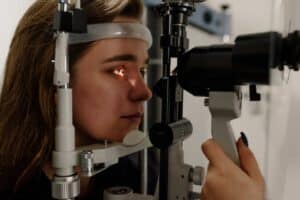Understanding the Link Between Psychological Distress and Physical Pain

Sometimes we may feel severe physical pain, or we get colds constantly, feel pain in our joints and bones, feel out of balance all the time, and suffer from severe migraines, but when we visit the doctor, he tells us that there is nothing wrong with us and that these pains stem from a psychological issue we are going through that is affecting our bodies negatively.
Psychologists and researchers have come up with a term known as “physical/psychological pain.” This term means that some pains are originally psychological and result from feeling very sad, frustrated, hopeless, or depressed, but which turn into severe physical pain that affects our entire lives.
Over the past several years, psychiatrists, researchers, and other mental health professionals have been studying the relationship between psychological and physical pain, and have discovered that bad mental states, negative thoughts, and waves of depression can cause many diseases and that it can lead to strokes, heart attacks, and sometimes even death.
According to doctors, when guilt/shame takes over, you may experience stomach pains, and it can significantly affect your colon and intestines. Here are some of the diseases that can affect us when our mental state goes bad.
Arthritis
One of the most common symptoms associated with psychological pain, is you often feel severe pain in your joints because you are going through an unbearable state of stress. There are more than 100 different types of arthritis, including osteoarthritis, which affects the cartilage and makes movement difficult and painful, and over time the pain will increase significantly.
There’s rheumatoid arthritis, an inflammation that attacks the joints and organs before the body’s immune system, and the worst part is that it’s persistent and leads to the breakdown and permanent destruction of the joints.
Osteoarthritis, the most common arthritis, usually affects the hands, knees, thigh bones, and spine, has an effect on other joints, and can lead to joint deformity and chronic disability.
Back and Neck Pain
Back and neck pain is one of the most common pains we experience due to muscle strain, sleeping in uncomfortable positions, lifting heavy objects, and trauma.
Chronic Migraines
When migraines occur for more than 15 days in a month, or if they occur continuously for three weeks, you can consider them chronic. Migraines are often associated with psychological issues and feelings of extreme stress or distress. Psychiatrists have found that it is mainly associated with anxiety, depression, or persistent worry.
Digestive Disorder
Gastrointestinal disorders are closely related to our psychological state, for example, feeling very sad or very happy affects our appetite. According to doctors, the reason behind this is that there is a relationship between the gut and the brain, as there is a close and complex connection between the two, and the digestive system contains sensory neurotransmitters like the brain that are affected by bouts of sadness and joy, causing gastric dysfunction such as lack of desire to eat, vomiting, indigestion, bloating, and colon issues.
Heart Attacks
A study found that a person is 21 times more likely to have a heart attack in the first 24 hours after the death of a loved one. Another study showed that certain bad life situations such as divorce or breakups lead to a medical condition referred to as broken heart syndrome, a short-term heart disease in which the heart does not function normally.
It is believed that a rapid increase in stress hormones such as adrenaline can temporarily damage hearts. Symptoms include sudden, severe chest pain. Broken heart syndrome can cause short-term heart muscle failure, but it is usually treatable but may recur when exposed to new bouts of grief.






